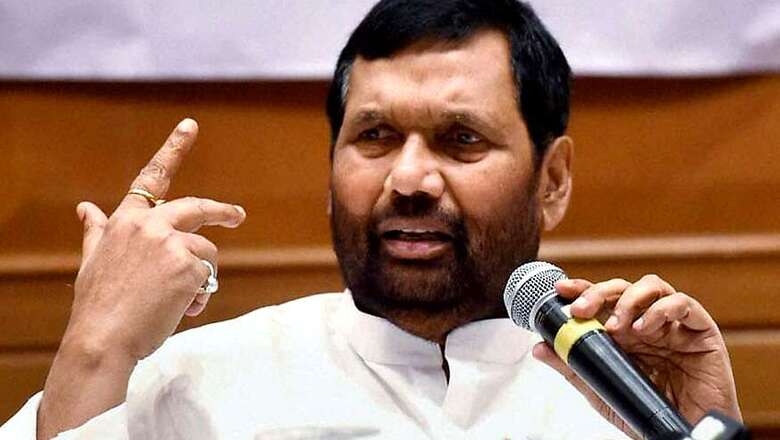
views
New Delhi: Ram Vilas Paswan was the social justice minister in the VP Singh government when the Scheduled Caste and Scheduled Tribe (Prevention of Atrocities) Act, 1989 was passed.
Thirty years later, as a minister in the Narendra Modi government, he led the charge again with the Supreme Court order relaxing stringent bail provisions in the law. He held meetings with Dalit MPs, his party sought to file a review petition in the Supreme Court.
In the end, he succeeded in forcing an amendment in the Act to neutralise the SC judgment. Paswan took the credit. To some extent, even some vocal BJP MPs like Udit Raj reiterated their commitment to social justice. The agitation against the SC order also triggered massive protests in pockets in north India and eight lives were lost.
Political ramifications of the unrest were felt in the just-concluded Assembly polls, especially in Madhya Pradesh.
In pockets of north Madhya Pradesh, which saw large-scale arson during protests, the BJP suffered electoral losses. The organisation of upper and Backward Caste employees, which went about with the acronym SAPAKS, queered the pitch further.
Union Social Justice Minister Thawar Chandra Gehlot's son faced the upper caste ire when he went about canvassing in his constituency. He eventually lost the elections.
"Our base voter was misled,” said a person close to Gehlot.
As he braces for Lok Sabha polls and finalises his alliances, Ram Vilas Paswan seems to be keeping a close watch on developments on other parts of the Hindi heartland.
"Once you take a decision like the NDA did on amending the Atrocities Act, the government has to take a strong stand and back it up vocally. Otherwise, it does not tend to have the desired impact,” says a senior LJP leader.
Though the Modi government made necessary changes in the SC/ST Atrocities Act as demanded by Dalit groups, it could not reap electoral dividend. On the other hand, the agitation ended up alienating a section of the upper caste as well.
"As the old saying goes, na Maya mili, na Ram,” says another LJP leader.
Having analysed the assembly polls, the biggest question before Paswan is whether the BJP will be able to transfer upper caste votes to his party candidates in the upcoming Lok Sabha polls. Or whether Yadav, Muslims and other backwards would be more compatible in voting along the LJP's Dalit voters?
Paswan is looking for the straw in the wind.
After polls, smaller parties can re-align and re-adjust. But to do that, Paswan’s party would first have to win seats. Arithmetic of the next Lok Sabha will take care of the rest.














Comments
0 comment